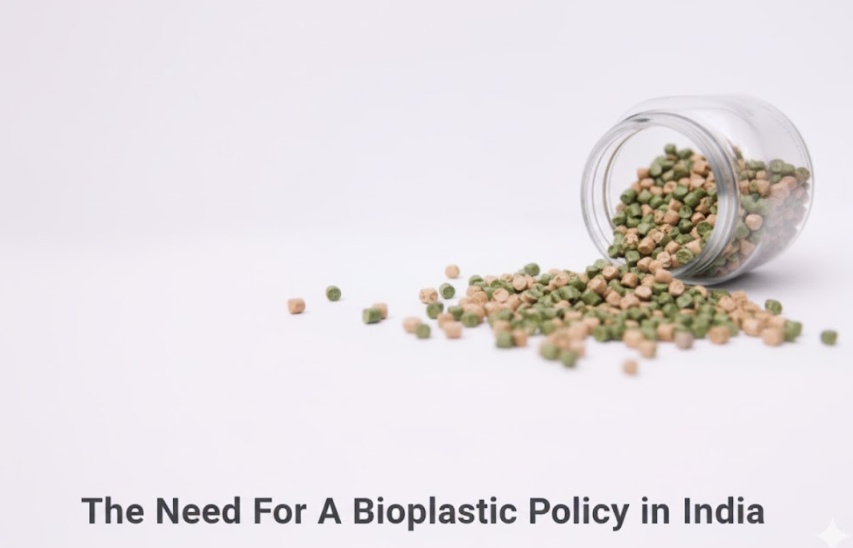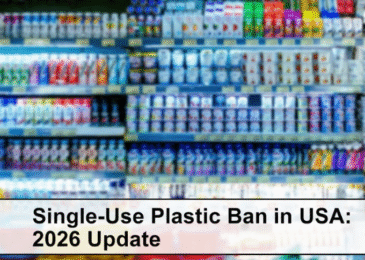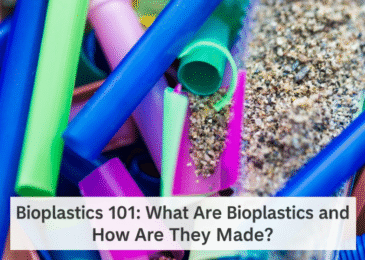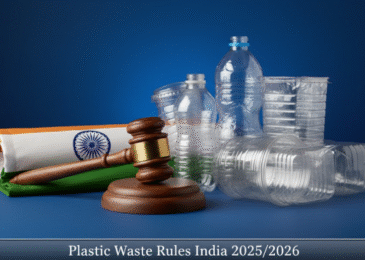I bumped into a surprising analysis last week.
India has banned many categories of single-use plastic items in 2022. But it currently imports more than 80% of its bioplastic raw material requirements.
That’s a huge gap.
For a country that produces over 500 million tonnes of crop residue every year, this is also a missed opportunity.
India has the resources to not only meet its own bioplastic needs but to become a global exporter of sustainable, homegrown materials.
Our raw material could power a thriving bioplastics industry.
So here’s the question. Why isn’t that happening already? Where is the policy that links our agricultural feedstocks directly into our packaging future?
At UKHI, we know this is doable. In our small way, we are working with farmers to show how the feedstock can help reduce India’s plastic waste problem.
The global bioplastic packaging market is also expected to reach USD 14.07 billion by 2032. So, incentives to produce bioplastics, or biopolymers made from agriculture waste in India could help our farmers and economic growth.
Of course it’s not easy.
More so when the current infrastructure in India to manufacture and safely dispose of bioplastics is severely lacking.
But we have to start somewhere.
In this guide, I’ll list the main ways bioplastics are regulated in India and what a strong national bioplastics policy (which does not exist at the moment) could look like.
What laws and rules currently cover bioplastics in India?
Does India really have a bioplastic policy, or are we simply stitching together old rules to fit a new problem? The short answer is not yet. We don’t have a dedicated “National Bioplastic Policy.”
What we do have is a series of broader rules that touch bioplastics, mainly through the Plastic Waste Management (PWM) Rules, 2016 and its amendments.
Here’s how the current rules approach bioplastics:
- Compostable plastics are allowed only if certified to the Indian Standard IS/ISO 17088. The Central Pollution Control Board (CPCB) must certify every bioplastic seller before marketing.
- Biodegradable plastics (as a separate category since 2024) must meet IS 17899T. They must break down fully and leave behind no microplastics or toxic leftovers.
- Labeling and traceability are also required. A compostable bag must clearly say “COMPOSTABLE.” And a biodegradable product must show how long it will take to break down and in what kind of environment (like soil or landfill).
The PWM rules also create space for certified bioplastics by exempting them from certain plastic bans. But there are other layers:
- Extended Producer Responsibility (EPR), which was made stricter in 2022, now includes bioplastics. Producers need to track, collect, and ensure the proper disposal of their products.
- The Bureau of Indian Standards (BIS) sets and updates the standards for all compostable and biodegradable plastics.
- Meanwhile, FSSAI oversees safety for any bioplastics used in food packaging.
This patchwork of rules sounds robust, but in practice, it leaves a lot of room for confusion.
Are bioplastics regulations clear and comprehensive in India?
As mentioned above, bioplastics are regulated under the PWM Rules in India. If you want to sell a bioplastic product in India, you need a CPCB certificate.
To get the certificate, compostable products get tested as per IS/ISO 17088:2021 for industrial composting. The testing is carried out at labs approved by CPCB or BIS.
As of 2025, all bioplastic products have to have a “COMPOSTABLE” symbol under India’s bioplastics industry regulation.
For food packaging, additional FSSAI regulations apply to make sure harmful chemicals do not leach into food.
But, as you might have already guessed, only a handful of companies in India have actually completed this process and made it onto the official CPCB list of certified suppliers. You might also find many “green” products that are not genuinely certified and some are simply mislabeled.
This brings us to a hard truth. The gap between the law and what’s happening on the ground is wide.
What are the gaps and challenges in India’s bioplastic policy?
India does not have a standalone bioplastic policy. What we have is a patchwork and pieces that don’t always fit together.
Here’s where we are falling short:
Weak Enforcement
Many products are falsely labeled as “biodegradable.” Even with mandatory labeling rules and attempts to introduce color-coding, state pollution boards struggle to check every product in the market.
High Costs and Lack of Incentives
Bioplastics in India can cost anywhere from 20% to 200% more than conventional plastics. Why? Because most bioplastics are still imported as raw material, there is no government support to offset the cost gap.
There aren’t any targeted incentives in India. No subsidies, GST cuts, or direct financial support for bioplastic makers. Without incentives, it is hard for Indian startups and manufacturers to compete or scale up.

Missing Composting Infrastructure
Even certified bioplastics end up in landfills because our cities rarely collect or process them separately. There are too few industrial composting facilities to make this work at scale.
Because consumer awareness is low, many people think “biodegradable” means it’s safe to litter. If a bioplastic bag lands in a regular landfill or in the open, it might not break down at all.
We need solutions that cut plastic pollution, but banning conventional plastic is not enough. Certified bioplastics, used and disposed of correctly, can:
- reduce the burden on landfills
- cut greenhouse gas emissions
- support India’s target of net-zero emissions by 2070
India is currently a net importer of bioplastics. But we have the world’s third-largest agricultural base that can create:
- extra income for farmers, and
- green jobs in manufacturing and research.
India’s bioplastics market is expected to grow at a 22.1% annual rate. It is projected to reach USD 1,809 million by 2030.

But without a bioplastic policy in India, these benefits will remain out of reach.
A strong bioplastics policy could join the dots across the entire value chain and create clear direction for producers and regulators. Let’s see what it could look like.
What should an ideal bioplastics policy for India include?
India needs a national bioplastics policy that links manufacturing and waste management.
Similar to the EU’s policy framework on biodegradable and compostable plastics, India’s bioplastics industry regulation should first include clear definitions of bioplastics and strict standards.
Since not all bio-based plastics are biodegradable and those that are must be carefully managed, terms like “compostable,” “biodegradable,” and “bio-based” are not interchangeable. India’s bioplastic policies must define each kind of plastic and match it to standards.
The government could also offer subsidies or GST reductions for certified bioplastics. Or, introduce production-linked incentives (PLIs).
At UKHI, we are already working with India’s farmers to turn agri‑waste into industrial‑grade biopolymer granules that match plastic performance.
Our injection moulding biopolymer, made from hemp and flax, can drop in on existing packaging lines and compost under industrial conditions. But India needs better facilities. Building infrastructure for composting and waste processing plants across urban and rural areas must be another critical priority.
So, bioplastic policy that supports such industry‑ready solutions can make a tangible difference.
FAQs
Does India have a national bioplastics policy in 2025?
India does not have a bioplastic policy. Bioplastics are governed through plastic waste management rules and BIS standards. But there is no standalone, comprehensive policy.
How are bioplastics certified and labeled in India?
Every bioplastic (compostable or biodegradable) needs to pass CPCB tests. The Plastic Waste Management Rules also require such products to be labeled “COMPOSTABLE” or state how and where they will break down. Certification from CPCB is based on testing to IS/ISO 17088 for compostables or IS 17899T for biodegradables.
How can India increase bioplastic manufacturing and composting infrastructure?
A bioplastics policy in India could incentivise the research and manufacturing of bio-based plastic products with simple subsidies and tax reductions. Composting infrastructure to keep the bioplastic industry sustainable and reduce pollution is equally important.
Are bioplastics really eco-friendly?
Most bioplastics are biodegradable in industrial settings. They do need to be disposed of properly to be eco-friendly. Otherwise, it causes the same problems as traditional plastics.






